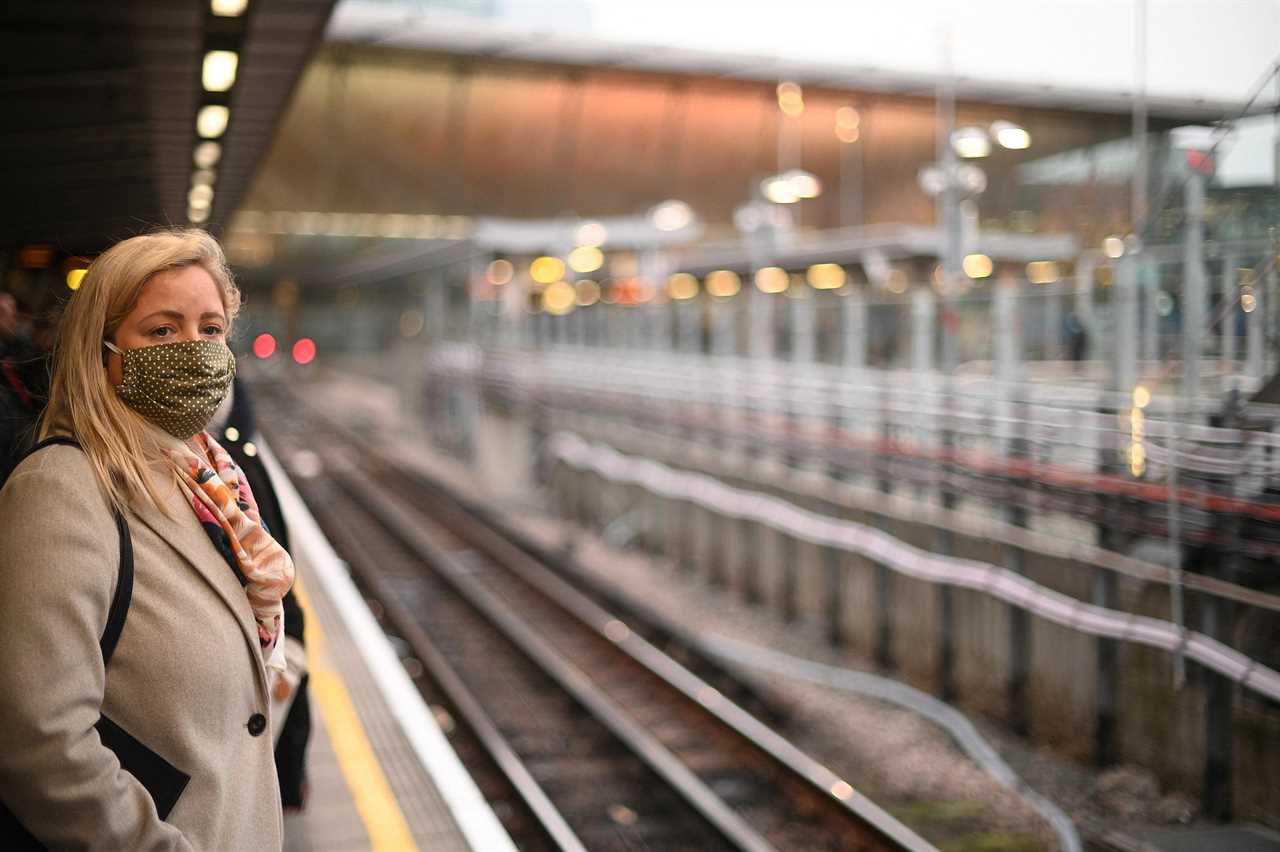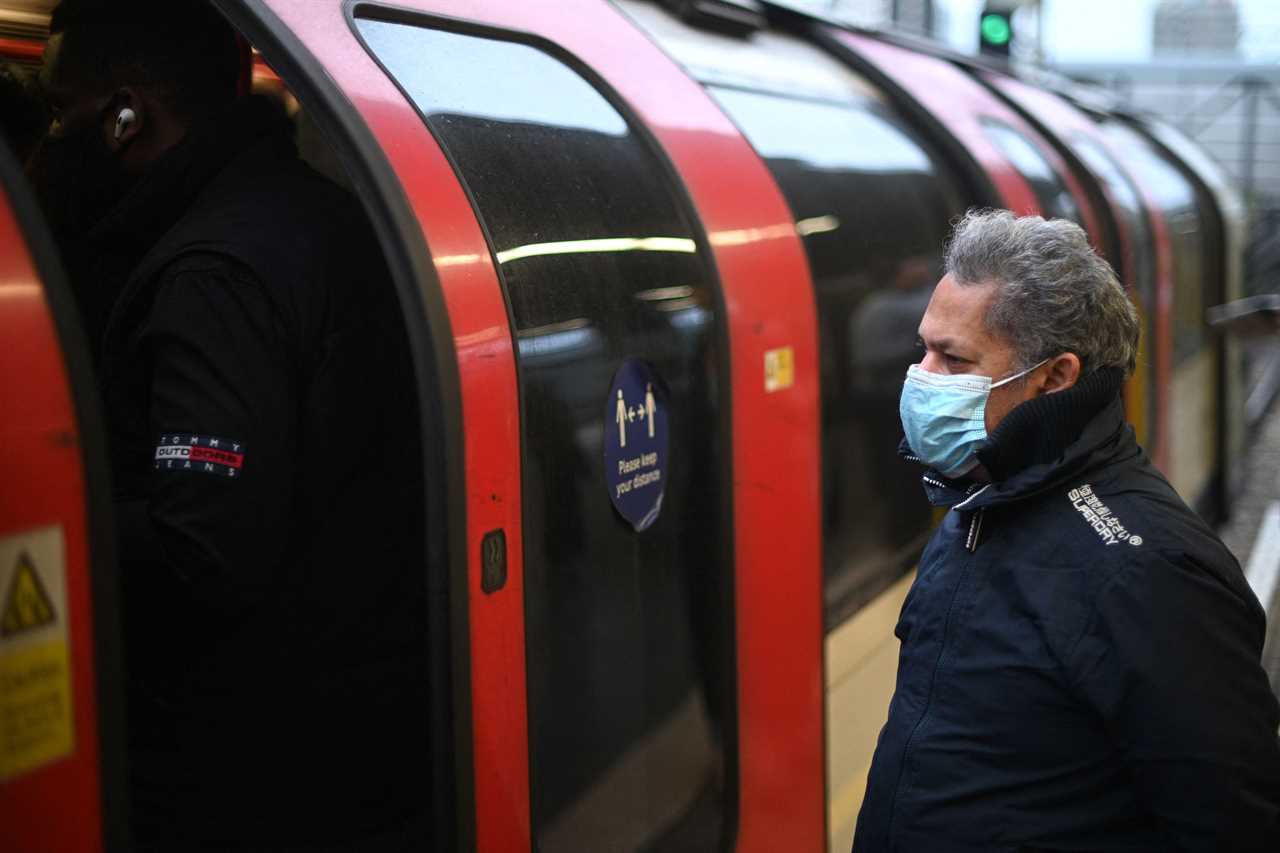NEW mandatory mask-wearing rules came into force yesterday – forcing people in England to cover up when they go into shops or on public transport.
People face a £200 fine if they break the law and don’t comply with the new rules, brought in to stop the omicron variant from spreading further.

The face mask measures had been in place for most of the pandemic, but was removed in July 2021 after Freedom Day.
The full list of indoor settings where masks will be compulsory includes:
- shops and supermarkets
- shopping centres and markets
- takeaways
- auction houses and retail galleries
- post offices, banks, building societies, high-street solicitors and accountants
- estate and lettings agents, and retail travel agents
- premises providing personal care and beauty treatments (such as hair salons, barbers, nail salons, massage centres, tattoo and piercing studios)
- pharmacies
- vets
- All forms of public transport
- taxis and private hire vehicles
- transport hubs including airports, rail and tram stations and terminals, ports, bus terminals and coach stations
- Any car or small van during a professionally delivered driving lesson, or a practical driving tests
Thankfully, you won’t have to wear a face mask in pubs, bars, restaurants, cinemas, theatres, parks, or any other venues at the moment.
But there are a number of exemptions to the new rules which mean some people don’t have to follow the new rule, or you can be exempt from wearing your mask at certain times.
They include:
- children under the age of 11 – but those in year 7 and above also have to wear them in communal areas at school
- to take medication, eat or drink
- a person providing services inside the venue
- someone working on the public transport service
- police officers or support officers acting in the course of their duty
- emergency responders
- when people are in a public transport vehicle which is being used mainly by people drinking, eating or dancing – like a party bus or a fine dining train
- if the public transport vehicle is outdoors
- when you are in a private cabin, such as on a sleeper train
- the same exemptions apply if people can’t wear a mask because of any physical or mental illness, impairment or disability
- when wearing a mask causes severe distress
- when someone requires assistance and needs to lip read
- if they need to avoid harm or injury to themselves or others
- to receive medical treatment
- when someone is fleeing on public transport to avoid injury or escape harm – even if they don’t have a face covering with them
- if you’re asked to take it off in a pharmacy to get health care
- a relevant person of authority such as a police officer asks that you take it off
Other new measures which came in today include the requirement for everyone coming into the country to quarantine and take a PCR test on their second day in the country.
If the swab comes back negative, they will then be allowed to leave isolation.
The PM has also revealed that self-isolation rules will be brought back for contacts of people who test positive for Omicron – and they will remain until March.
Those who have been in touch with someone who gets the new variant will have to self-quarantine for 10 days even if they are fully vaccinated.

At yesterday’s press conference the PM announced that he wanted every person in the country to get their booster jab by the end of January – setting a two month deadline for everyone.
Experts urged the public not to bother getting in touch unless they were over 40 year, and they would be contacting people in due time.
The vaccination capacity will need to be ramped up again, and the army brought back too, to help the effort.






